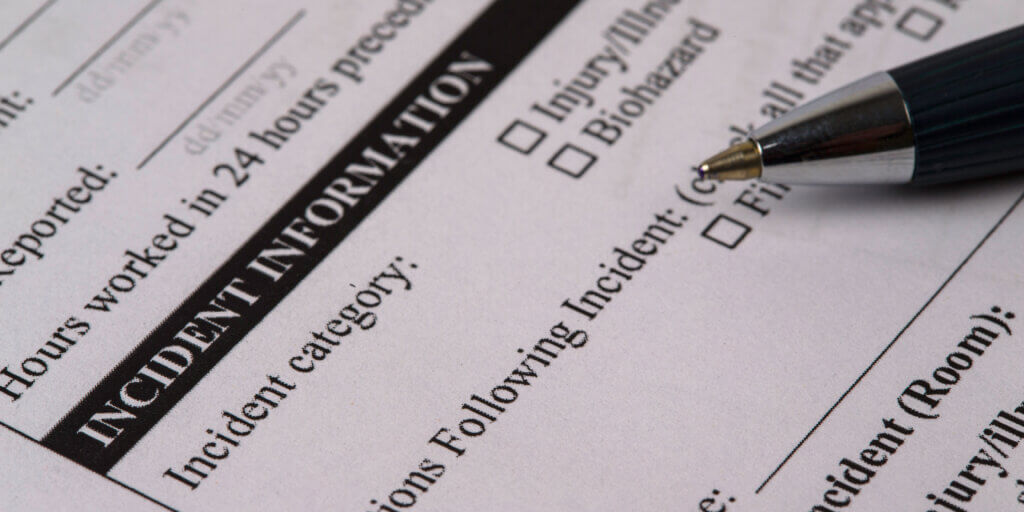OSHA Reporting
Serious incidents in the workplace, including work-related deaths and major injuries, require strict adherence to OSHA reporting requirements.
OSHA reporting assistance by Medcor ensures that your organization can promptly and accurately report incidents, stay compliant, and avoid costly penalties and violations.
OSHA Reporting Requirements
Federal OSHA regulations require that employers report work-related fatalities, injuries, and illnesses within strict time frames.
Employers must adhere to strict deadlines set by the Occupational Safety and Health Administration (OSHA) for reporting Severe Injury Events. Fatalities must be reported to OSHA within 8 hours, while hospitalizations, amputations, and eye losses must be reported within time frames that vary by state.
OSHA Injury Reporting
Certain types of severe injuries and illnesses must be reported to OSHA, including amputations, the loss of an eye, and injuries requiring hospitalization. These incidents highlight serious workplace hazards and are critical for ensuring compliance with OSHA regulations and improving workplace safety measures.
Determining Work-Related Injury and Illness
OSHA requires employers to report and document incidents that meet specific criteria for occupational injuries and illnesses. To determine if an incident is work-related, the injury or illness must have resulted from an event or exposure in the work environment, contributing significantly to the condition. Common examples include injuries caused by workplace equipment, exposure to harmful substances, or conditions aggravated by workplace activities. However, there are exceptions, such as injuries incurred during personal tasks outside working hours, voluntary participation in wellness programs, or incidents resulting from eating, drinking, or grooming at work. Misclassification of such cases is a recordkeeping violation under OSHA regulations.
OSHA’s injury and illness recordkeeping rules emphasize the importance of accurately identifying and reporting incidents to address occupational hazards effectively. Some conditions, like fractures or amputations, are straightforward, while others, such as work-related cancer or chronic diseases, may require deeper evaluation. By incorrectly classifying an injury as “first aid” instead of a “recordable” injury, you could be underrepresenting the occupational risks to your employees, putting them in further danger. In December 2022, OSHA fined six Amazon warehouses $29,008 for violations, including improper classification of occupational injuries and illnesses, illustrating the critical need for compliance. Proper reporting enables employers to assess workplace risks and implement measures to prevent further incidents.
OSHA Inspections
Employers can expect an onsite OSHA inspection under several circumstances, such as following a workplace fatality, a complaint filed by an employee, or as part of a targeted inspection program focused on high-hazard industries. Inspections may also occur randomly to ensure compliance with OSHA standards. Proper reporting and recordkeeping play a crucial role in ensuring the inspection process runs efficiently. Accurate and up to date records like OSHA Form 300, 301, and 300A demonstrate an employer’s commitment to compliance and workplace safety, helping inspectors quickly verify adherence to OSHA standards. By maintaining detailed documentation, employers can address questions promptly and focus on resolving any identified issues efficiently.
How to File an OSHA Incident Report
Employers have several options for filing an OSHA incident report to comply with reporting requirements for occupational injuries and illnesses.
1. Call your local OSHA office directly during business hours.
2. If an incident occurs outside of business hours, utilize OSHA’s 24-hour hotline at 1-800-321-6742 to ensure your report of the incident is not delayed.
3. OSHA also offers an electronic submission option through their online reporting system, providing a straightforward way to ensure timely compliance.
Workplace accidents can happen at any time, not just during regular business hours. To ensure timely and accurate reporting, employers can benefit from utilizing a third-party service, solely dedicated to OSHA Reporting and Recordkeeping, offering virtual solutions for incident management.
OSHA Reporting Assistance by Medcor
Medcor’s OSHA reporting service seamlessly complements your existing incident reporting process, helping you stay compliant with federal and state OSHA requirements. By utilizing multi-channel notifications, Medcor captures initial data to determine OSHA Severe Event Reporting and recordkeeping regulations. Proprietary OSHA reporting software tracks each event by location, ensuring thorough data collection and streamlined compliance. Reports are accessible through a secure client portal, offering quality assurance and accountability.
Outsourcing OSHA reporting and recordkeeping to a trusted provider like Medcor reduces administrative burdens and ensures accuracy. With over 25,000 events managed and a proven track record of zero late reports, Medcor’s approach has significantly decreased overreporting, late events, and targeted OSHA inspections. Their services are scalable, meeting your organization’s unique needs, and are available 24/7 across North America. Learn more about Medcor’s comprehensive solutions for employer support and enjoy peace of mind knowing your OSHA Severe Event Reporting and recordkeeping are handled professionally, no matter where or when incidents occur.




